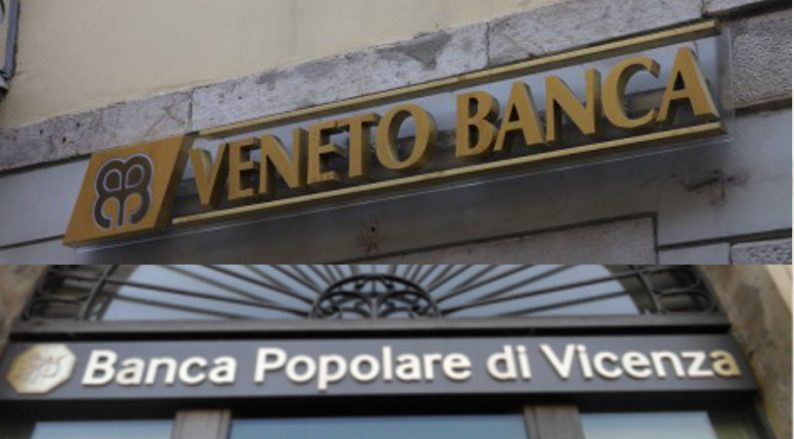Last week, two more Italian banks were forced to close due to insolvency.
As is often the case, bad loans were the cause of the downfall for both banks. They made too many risky bets on borrowers that didn’t pay off.
On the Hook for Billions
The Italian taxpayer, who will be forced to bail out two banks, never volunteered to put their money at risk.
Banca Populare di Vicenza SpA and Veneto Banca SpA are the two banks that failed in this case. Their loans and deposits will be taken over by another bank, Intesa Sanpaolo SpA, for the grand total of 1 Euro. More specifically, Intesa is only acquiring the good assets. Meanwhile, the excessive losses on the bad loans will be absorbed by the Italian government, which is putting up $19 billion in support for the deal.

The end result is a good deal for Intesa, which acquires income-generating assets without meaningful risk. It’s also a great deal for the investors and creditors of the failed banks. In a true bankruptcy, they would have lost much or all of their money. But under the state-assisted sale to Intesa, these creditors and investors – who willingly took a risk – will be protected from loss.
The unequivocal loser is the Italian taxpayer, who will be forced to bail out two banks, even though the taxpayers themselves bear no responsibility for the failure and never volunteered to put their money at risk.
On its face, this is a perverse outcome. And even if we could ignore the plain immorality of taxing a random third-party (the taxpayer) to protect the interests of a few, there’s still another problem – the problem of moral hazard.
In economics, moral hazard refers to the idea that people tend to take more risks when they do not bear the full potential negative consequences.
When banks get bailed out, other bankers are encouraged to behave recklessly.
So, when football helmets were adopted, players felt emboldened to use their head as a weapon – concussions became commonplace and the rules had to be changed. When seat belts were implemented, car drivers apparently felt safer, drove faster, and caused pedestrian fatalities to go up.













Leave A Comment